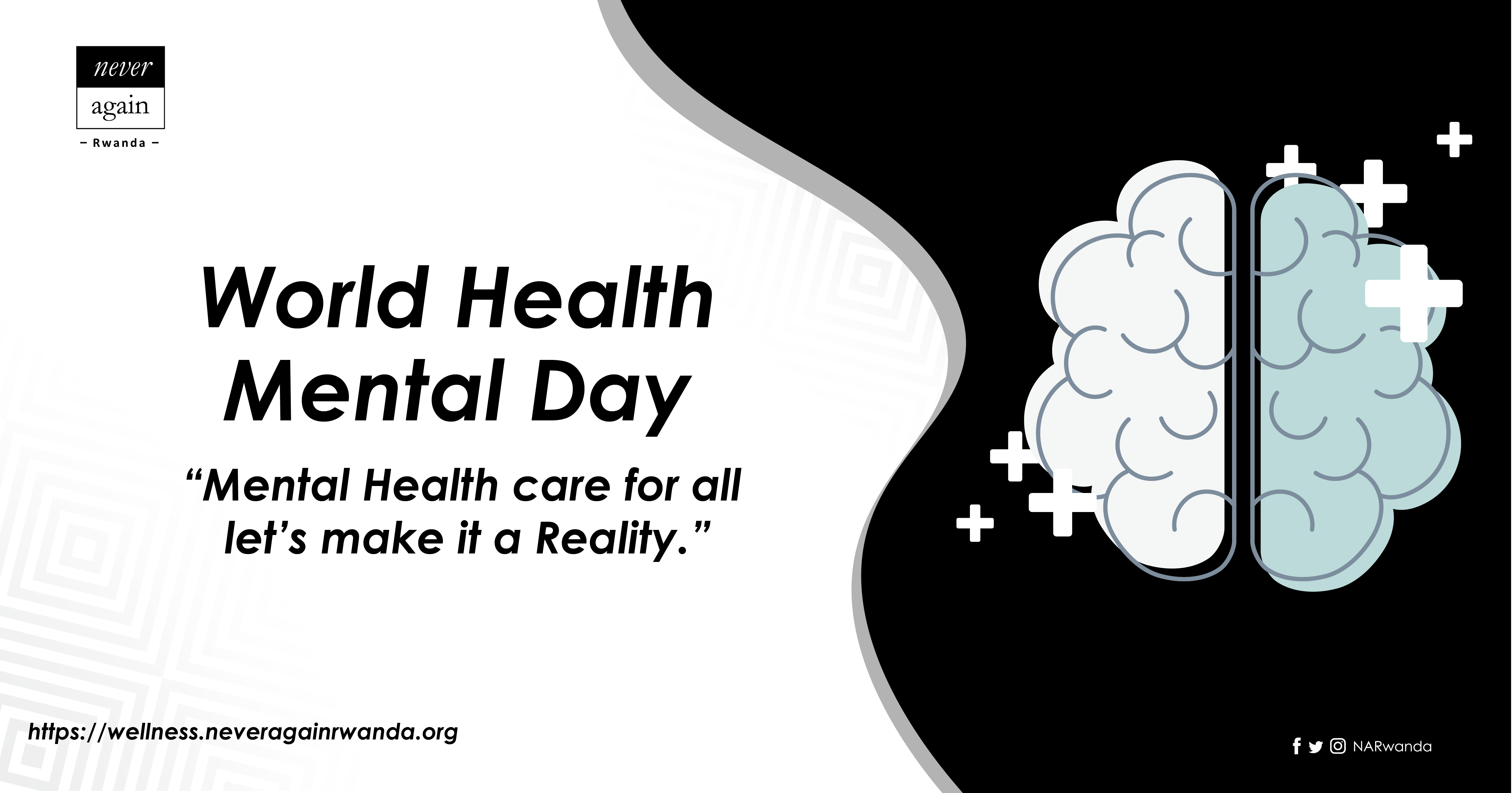Today, we join in observing World Mental Health Day, under the global theme “Mental health care for all: let’s make it a reality”. We take the opportunity to raise awareness about the importance of fostering open and safe discussions around mental health, so that we can fight stigma and support efforts of the need for accessibility of mental health services for all.
Mental health challenges often come after, crises like loss, grief, conflicts and genocides among many other, yet it’s hard to predict how long the recovery process can take for each affected individual. It’s therefore vital for every citizen to be aware of their mental health state, regardless of age, past experience or social status.
In Rwanda’s post-genocide context, both the government and civil society organizations including Never Again Rwanda have made tremendous efforts to increase and improve the access and diversity of mental health services among the entire population. This is attributed to the fact that the 1994 Genocide against the Tutsi left Rwandans with wounds and traumas to heal for generations.
According to the 2018 Rwanda Mental Health Survey, Post-Traumatic Stress Disorder is eight-fold more prevalent among Genocide survivors compared to the general population (27.9% vs 3. 6%). Never Again Rwanda has been providing psychosocial support through establishment of safe spaces for peace, made up of Rwandans from diverse backgrounds, including genocide survivors, women raped during the genocide, children born out of rape, children from perpetrator families among many others. As they continuously dialogued about their painful stories, with the help of a psychotherapist, they were able to collectively begin their healing journey, a positive impact that trickled down to their families and communities.
Over the years, we have seen the members of the safe spaces regain a sense of hope for life, decrease their desire to revenge or commit suicide, increase trust, tolerance and forgiveness of themselves and those who wronged them.
As the world has been grappling with the COVID-19 pandemic, the lockdowns and restrictions have left many people affected socially, economically and psychologically. In 2020, we begun offering individual therapy sessions from people who experienced trauma, anxiety and depression as a result of both the COVID-19 pandemic as well as past recurring trauma.
In a bid to promote wellness and mental health at a larger scale, NAR in partnership with various peace actors have continued to organize awareness raising campaigns through TV and radio shows, social media campaigns, educational materials, and engaging various groups in dialogue. We also established an online wellness portal (https://wellness.neveragainrwanda.org/) that is open to everyone (English and Kinyarwanda) to anonymously self-evaluate their anxiety level or request to talk to a professional should they wish to. NAR is in the process to establish a psychical mental health center that will increase access to mental health services and contribute to the ongoing process of ensuring psycho-social support is accessed by more through community-oriented approaches to healing.
In order to make mental health for all a reality it requires collective and individual efforts as well as constantly sharing information about mental health services, with emphasis on availability. As an organization devoted to promoting wellness and healing, we will continue to develop evidence-based interventions and conduct strategies for community based psychosocial initiatives with emphasis on both informal and formal psycho education regarding mental health wellbeing.
Together, we can raise awareness and eliminate inequities in mental health.


